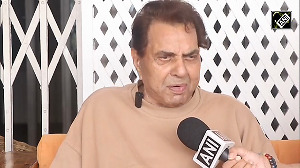The six-party talks on the vexed North Korean nuclear issue opened in Beijing on Wednesday with the United States insisting Pyongyang abandon its atomic ambitions in return for economic and security guarantees.
The fresh round of in-camera negotiations opened at the Diaoyutai State Guest House to discuss how to follow through on the agreement reached in September. Envoys from the
United States, North Korea, South Korea, China, Russia and Japan are attending the meeting.
North Korea should first abandon its nuclear programme and create a nuclear-free Korea Peninsula, then other issues could be discussed, US chief negotiator Christopher Hill said before the talks.
"When the DPRK backs the treaty on the Non-Proliferation of Nuclear Weapons with the IAEA safeguards, at an appropriate time we'll have a discussion about the subject of the provision of light water reactor," Hill said.
Democratic People's Republic of Korea is the official name of North Korea.
While mentioning the possible DPRK-US bilateral meetings during the current talks, Hill said many two-way discussions will be held and it is likely for them to meet the DPRK counterparts.
"I look forward to hearing from the Chinese delegation on how they assess the negotiations," Hill added.
During the fourth round, North Korea agreed to abandon its nuclear programme in return for security guarantees and economic aid from the other participating nations.
The first phase of the fifth round of six-party talks will be held from November 9 to 11.
"The six-party talks already have a clear direction, they are like a beacon guiding the six parties toward progress," the North Korean delegation head Kim Gye-gwan said.
"But that beacon at present is far away and moreover the mist on the ocean is thick and sometimes it blurs the beacon," Kim said.
However, he said, all the parties involved could pool their wisdom and work together for further progress.
United States and North Korea have been locked in a diplomatic standoff since October 2002 when Washington accused Pyongyang of pursuing a covert nuclear programme based on highly enriched uranium, violating a 1994 bilateral agreement.
Three years ago, Bush had branded North Korea part of an 'axis of evil' with Iran and Iraq. Washington and Pyongyang had been engaged in regular verbal duels since
October 2002, threatening peace in the North Asia region and causing much concern in countries the region.






